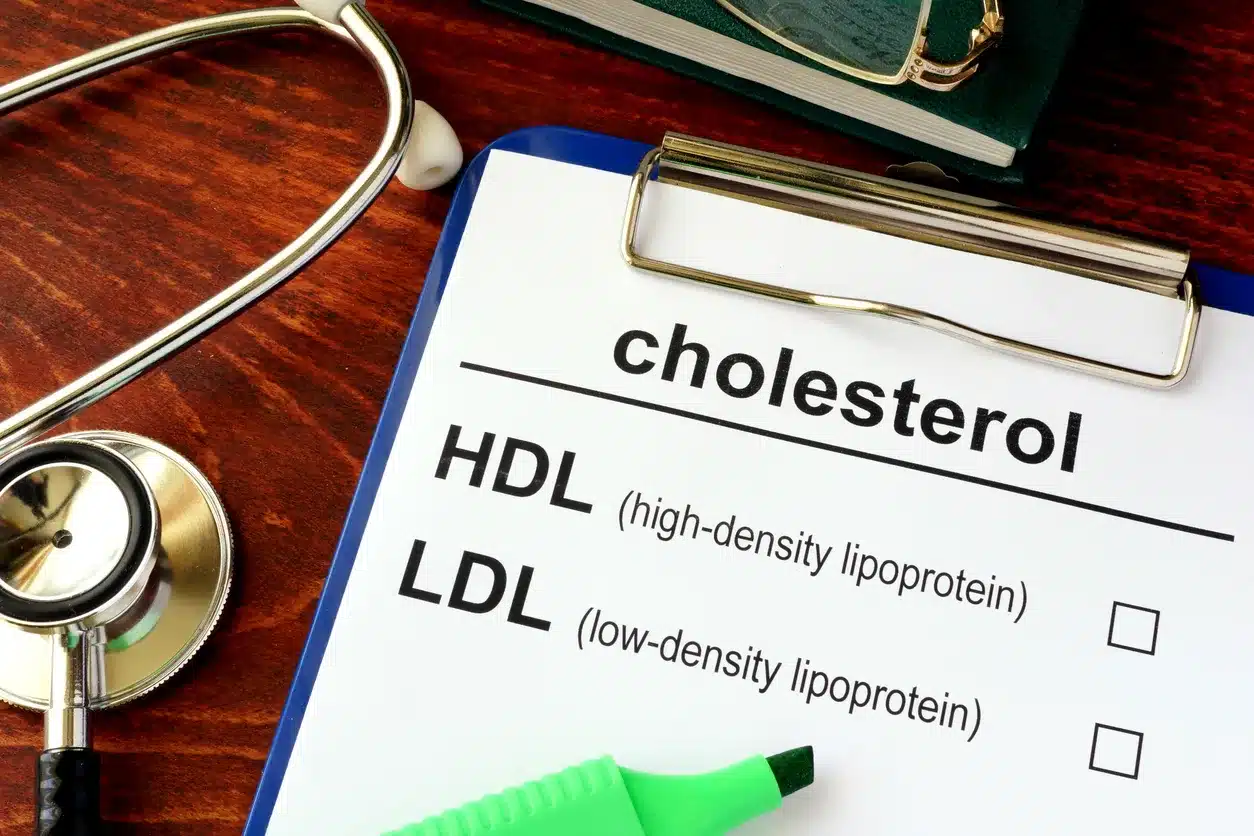
Many people are affected by high cholesterol every year. MainStreet Family Care is here to tell you about the causes, diagnosis, treatment methods, complications, and prevention of this chronic disease.
What Causes High Cholesterol?
High Cholesterol happens when a person’s blood flow is blocked by fatty deposits of cholesterol in the blood vessels. This condition is extremely common, and according to the CDC 2 out of 5 adults suffer with it.
There are no outward symptoms of this disease, so it is imperative that you get checked to ensure you do not have it.
Family History
There are several risk factors for developing this disease, such as a family history of high cholesterol. If anyone in your immediate family such as your mother or father has high cholesterol, you are more likely to develop it as well.
Dietary Factors
Additionally, you can develop high cholesterol from your lifestyle habits, such as your diet.
Consuming large amounts of a type of fat known as low- density lipoproteins (LDL) contributes to this. People that consume more high-density lipoproteins (HDL) have a decreased risk of developing high cholesterol.
Foods that contain a high amount of cholesterol and fat content include:
- Seafood
- Fried foods
- High fat meats such as bacon and sausage
- Red meat
- Dairy
- Poultry and eggs
- Cheese
- Cured meats
- Butter, oil, and ghee
While some of these foods provide nutritional value, you should consider not eating them in excess and avoiding saturated fat.
Lifestyle Factors
In addition to the foods that you eat, other lifestyle factors can have a profound impact on your cholesterol levels including:
- Being overweight or obese
- Having limited physical activity
- Using tobacco or smoking
- High alcohol consumption
- Other chronic diseases such as diabetes
Diagnosing High Cholesterol
Since there are no symptoms associated with high cholesterol, you must be diagnosed by a medical provider to know if you have this disease. Your primary care provider is the best place to get this diagnosis with a simple blood test.
A lipid panel is used to measure your total cholesterol level, and is recommended every five years. However, depending on your risk factors and lifestyle, you may want to be checked more often.
MainStreet Family Care offers lab tests in our primary care services.
What Are The Treatment Methods?
The difficulty of treating high cholesterol only increases when undiagnosed for long periods of time. For those that catch the disease early and only have slightly high cholesterol, there are a few lifestyle changes that can be made to help treat it such as:
- Eat more good cholesterol such as those containing omega-3 fatty acid and HDL cholesterol.
- Implement a regular exercise routine in your life.
- Include more fruits, vegetables, and whole grains in your diet.
- If you are overweight, try to lose weight in healthy manners.
- Limit your intake of saturated fats and trans fats.
- Stop smoking or using tobacco.
Heart.org claims that the best way to ensure you do not suffer from high cholesterol is making lifestyle changes early. This also contributes to lowering your risk of heart disease.
For those with much higher cholesterol, providers generally treat it with:
- Calcium channel blockers
- PCSK9 inhibitors
- Bile acid sequestrants
- Cholesterol absorption inhibitors
Complications From Untreated High Cholesterol
There are many complications that can arise for those that do not treat their high cholesterol levels. Complications include:
- Major build up in your arteries
- Blood clot
- Heart attack
- Stroke
- High blood pressure
- Increased risk of heart disease
Turn To MainStreet Family Care
Wanting to get your cholesterol levels check? Turn to MainStreet Family Care! To receive our primary care services, sign up online and schedule your first appointment.






